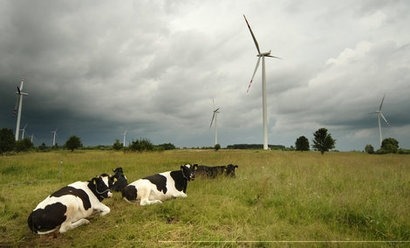
At present, Priority Dispatch rules require network operators to feed energy produced by renewables into the grid. However, an EU impact assessment seen by The Guardian this week shows that modelling of four future energy scenarios could include the removal of the system from the EU renewable energy directive, which is currently being rewritten for the period after 2020.
This in turn has the potential to generate a 10 percent increase in European carbon emissions as well having a significant adverse impact on the industry. Senior figures in the renewables sector say they would seek compensation if Priority Dispatch was removed, as well as requesting access to balancing markets in order to avoid a contraction of the industry. Clean energy operators may also demand an extension of the capacity market system for renewables, which at present, in effect, pays gas generators to remain idle.
“We’re looking at this as a high priority issue” said Oliver Joy of the trade association WindEurope. “We are expecting the proposals to come out at the end of this month and we would like to see priority dispatch remain. If PD is removed then there needs to be clear measures to ensure renewables are placed on a level playing field with other technologies. We also need to be sure that if PD is removed it doesn’t affect existing assets.”
If Priority Dispatch was removed, it could drain funding from renewable energy projects or even forcing operators to switch clean energy generators off. This would in turn have the effect of ending or negating the EU’s current policy of promoting the advancement of clean energy.
“Without PD, renewables are at risk of curtailment, which could mean lost revenues for investors and developers” Mr Joy added. “In the case that energy needs to be curtailed or constrained due to low demand or inadequate grid infrastructure then it is likely that renewables would be the first to be scaled back due to the inflexible nature of other technologies such as coal. Access to balancing markets and clear rules on compensation are essential in this scenario.”
At Wind Energy Hamburg last month, German Energy Minister Sigmar Gabriel stated that Germany would oppose the proposal if it was given serious consideration. The Priority Dispatch system has been decisive in helping Germany and other European countries to build up their green energy infrastructure, which in Germany itself now supplies a third of the country’s electricity demand.
For additional information:

